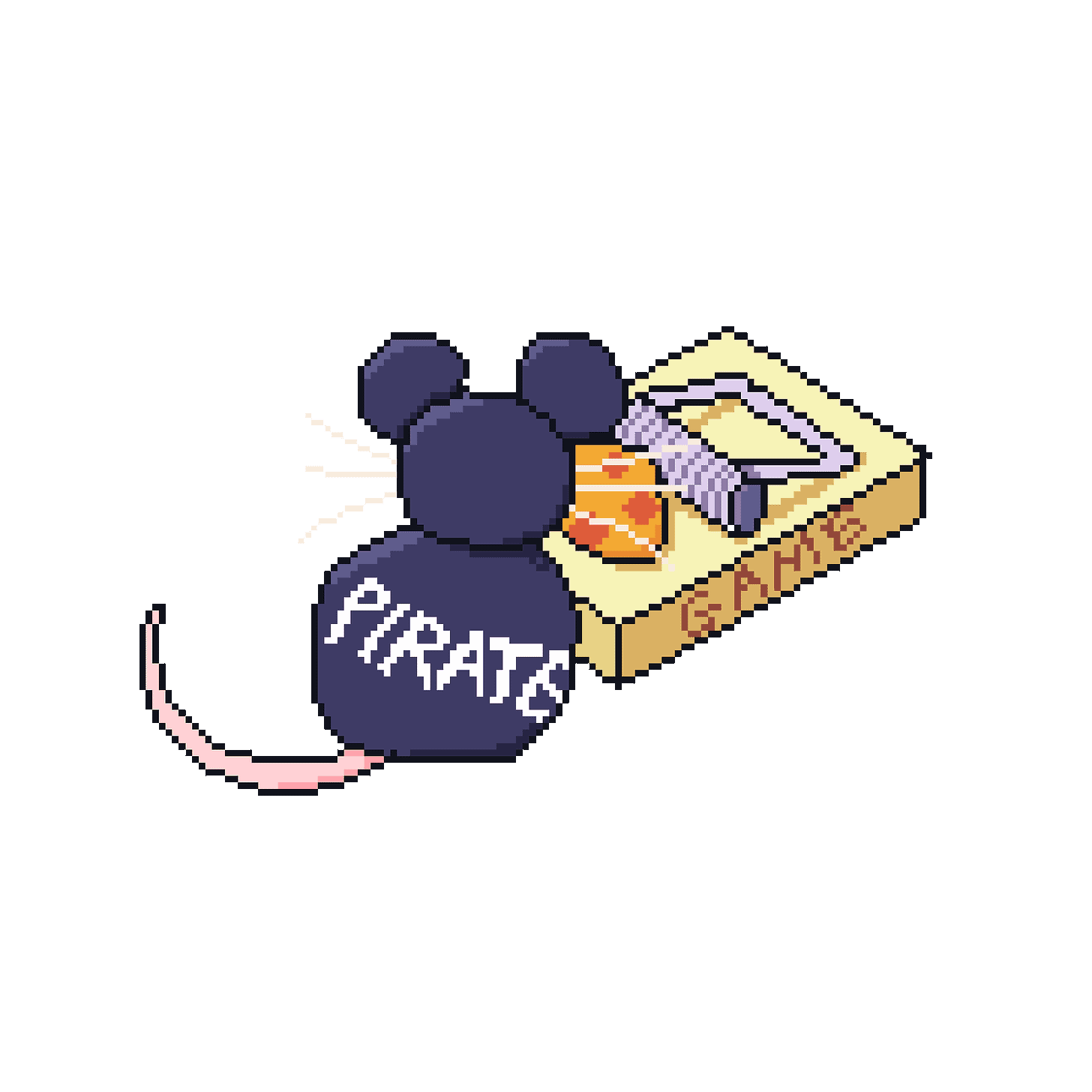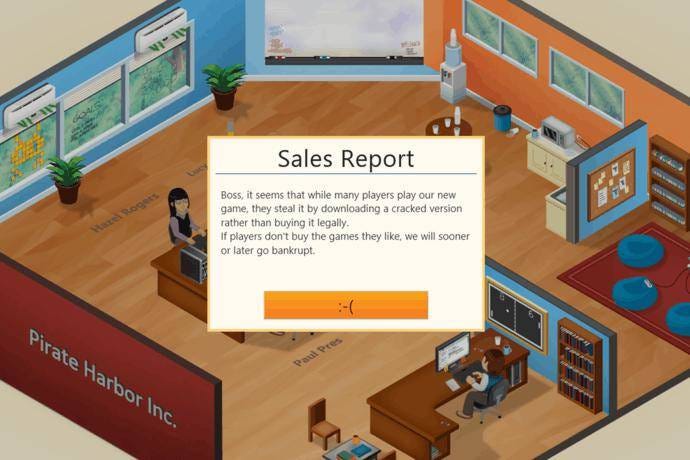the weirdest sh*t game studios pulled to fight piracy
how do you have fun watching people pirate your work? also I explain game piracy (part 2)
No one likes their work stolen.
And absolutely no one likes their work stolen and shared with one million other people. That’s the case for game piracy. So it’s obvious that game studios have to do something to prevent that.
The most boring thing they can do is slam Denuvo into their games. Denuvo is basically making the life of game crackers hell because it makes games almost impossible to “reverse engineer and debug”. It also makes players’ lives hell because it hurts game performance significantly, making the game experience so much worse. Nobody likes that.
A few other game developers see this and decide to get clever. Being the game designers themselves, they know what makes their games great, and, on the other hand, how to make it a nightmare for pirating players.
They set up some traps
1. preventing the players from completing the games
So let’s say you’re a player. You have spent tens of hours in the game, what would annoy you the most? What’s more evil than not letting you finish it after all those hours, to never finish the game, never to see the ending, and never to get the biggest reward?
Some game devs do that to punish the players for playing it cracked.
Earthbound
HAL Laboratory went to extensive lengths to prevent piracy of Earthbound, implementing various measures such as region checks and memory constraints on cartridges.
Earthbound is already well known for its unforgiving difficulty curve in the game. If discovered, those attempting to bypass these measures face additional challenges within the game, including encountering a significant increase in enemy encounters, which makes the game so much more challenging and tedious to play.
Even if players manage to overcome these hurdles and reach the final boss, they'll find their progress thwarted as the game freezes, followed by a complete reset of all save files, erasing approximately 30 hours of gameplay.
2. traumatizing the sh*t out of the players
Witcher 2
Similar to its renowned sequel, The Witcher 2 allows players to engage in romantic relationships with various NPCs, featuring some fairly 'steamy' scenes as a reward. However, players using pirated copies of the game encounter unexpected surprises. Marietta Loredo. All romanced NPCs are replaced by a peculiar character named Marietta Loredo, a fairly old lady and not necessarily appealing to the majority of players.
Serious Sam 3
Serious Sam 3 took a much more terrifying approach to combating piracy. Players using illegal copies were relentlessly pursued by a massive, red, scorpion-like arachnid. This creature was both incredibly fast and invincible, ensuring players' demise.
The constant fear of its sudden appearance and unstoppable attacks made playing the pirated version a harrowing experience, likely encouraging many to purchase the legitimate game. While the authentic experience lacked the constant threat of death, it undoubtedly offered a more enjoyable gameplay experience overall.
4. making the game unplayable
Sims 4
The developers of The Sims 4 took a sarcastic approach to addressing piracy. In the game, players are familiar with the pixelated censorship bubble that covers Sims' private parts during certain actions like showering or using the bathroom, and then goes away when the deed is done.
However, in pirated copies, this censorship doesn't disappear after the action is completed. Instead, Sims become stuck in an endless loop, and the pixels progressively spread until the entire screen is censored, rendering the game unplayable. This humorous twist served as a quirky deterrent to piracy.
Crysis Warhead
Crysis Warhead employed a comical anti-piracy tactic where pirated versions of the game replaced bullets with chickens when firing a gun. While chickens have their charm, using them as projectiles was certainly unorthodox.
However, these chicken "bullets" inflicted no damage on opponents; they merely stunned them briefly. This amusing twist rendered the pirated version impractical for gameplay.
5. irony
What hit better than a taste of their own medicine?
Game Dev Tycoon
In the game Game Dev Tycoon, developed by Greenheart Games, players aim to manage a thriving game development studio. When considering an anti-piracy method, Greenheart Games opted for an ironically fitting approach.
In pirated copies of the game, players can progress normally, but once they achieve significant success, they encounter a twist. Suddenly, their newer game releases fail to garner the same success as before, plunging their studio into financial trouble.
Eventually, an employee informs the player that their games are being pirated, leading to their inevitable downfall. This clever tactic prompted those who pirated the game to flood online forums with inquiries on how to circumvent the in-game piracy mechanic. Only to be laughed at.
the best anti-piracy method yet
All jokes aside, piracy is a real problem. Finging out a way to do good business in this world full of piracy is tricky for game developers. Knowing the gaming community, I firmly believe that there would not be any technical measures secure enough to stop piracy.
I would like to borrow a quote from Gabe Newell, co-founder and president of Valve, the mother company of Steam, the world's largest PC game distribution channel:
“One thing that we have learned is that piracy is not a pricing issue. It’s a service issue. The easiest way to stop piracy is not by putting antipiracy technology to work. It’s by giving those people a service that’s better than what they’re receiving from the pirates.” –Gabe Newell, 2011
It could mean providing frequent updates to your game, building a healthy and active community, or making content that is exclusive only for paid players. It could also mean don’t put Denuvo in your game.
Piracy, in another perspective, can benefit your game in some unforseen ways.
Perhaps the important question is not “how to stop piracy?”, but “how do I make a service so good people buy my game?”






